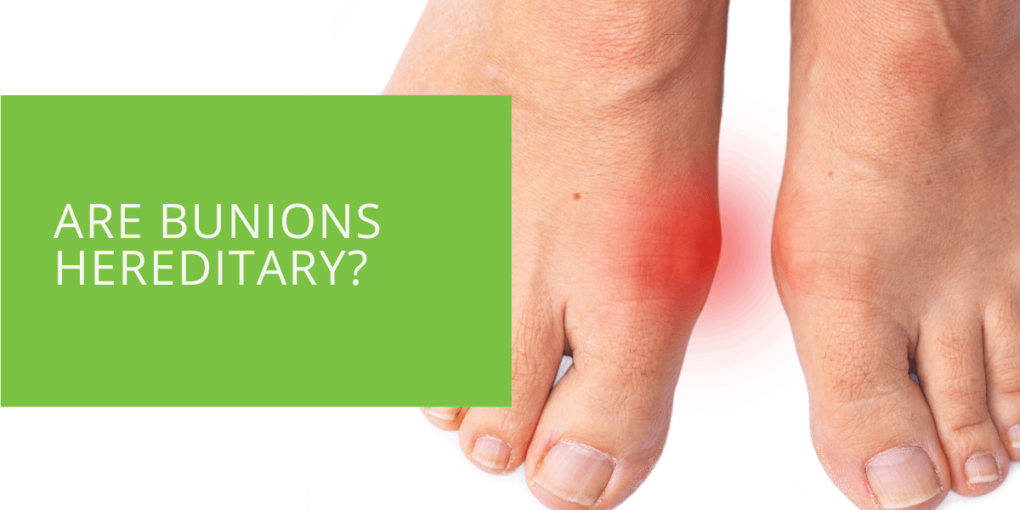Are Bunions Hereditary? Unraveling the Genetic Connection
Bunions are a common foot problem that can cause a great deal of discomfort and embarrassment. They often appear as a bump on the side of the big toe, causing the toe to lean towards the other toes, and making it difficult to find comfortable shoes. However, the causes of bunions are not always clear, and many people wonder whether they are inherited or the result of other factors.
If you suffer from bunions, it's important to understand the underlying causes so that you can take steps to manage your symptoms and prevent further complications. In this in-depth investigation, we will explore the fascinating world of bunions, examining the genetic and environmental factors that may contribute to their development. We will also explore the most effective treatments for bunions, from simple home remedies to advanced surgical procedures, to help you find relief and regain your mobility. So, if you're looking for answers about bunions, you've come to the right place!
Key Takeaways
- Bunions have a genetic component; if they run in your family, you may have an increased risk of developing them.
- While genetics play a role, other factors like footwear choices and foot structure also influence bunion formation.
- Consulting a podiatrist for early diagnosis and personalized treatment options is crucial in managing bunions and preventing discomfort.
Genetic Component of Bunions
Is There a Genetic Link?
Research has shown a compelling link between genetics and bunions. When we discuss bunions and heredity, we refer to the tendency for bunions to run in families. This is more than mere coincidence; it hints at the genetic predisposition to this condition.
Family History and Bunion Risk
A significant indicator of your susceptibility to bunions is your family history. If your parents or grandparents have experienced the discomfort of bunions, there's a higher likelihood that you might, too. However, it's essential to note that having a family history of bunions doesn't guarantee their development but rather increases your risk.
Are Bunions Truly Hereditary?
Bunions, although influenced by genetics, are not solely determined by your family tree. Other pivotal factors come into play, shaping the ultimate destiny of your big toe.
The Podiatrist's Perspective
When to Consult a Podiatrist
It's not just genetics that matter; how you manage and treat bunions can make a significant difference. This is where a podiatrist, a specialist in foot and ankle conditions, becomes invaluable. If you suspect bunions or have a family history of bunions, it's essential to consult a podiatrist. They can provide a thorough evaluation and personalized guidance.
Diagnosis and Evaluation
Podiatrists employ various diagnostic tools, including physical examinations and X-rays, to assess the severity of your bunions. This comprehensive evaluation guides them in recommending the most suitable treatment options.
Treatment Options
Non-Surgical Methods
Lifestyle Changes
Simple lifestyle changes can often alleviate the discomfort of bunions and slow their progression. This may include switching to footwear with proper arch support and avoiding high heels or shoes that squeeze the toes.
Orthotics
Custom orthotic inserts can be a game-changer for those with bunions. They help redistribute pressure on the affected area, providing relief from pain and preventing the worsening of the condition.
Physical Therapy
Physical therapists can design exercises to strengthen and enhance the flexibility of the toes, which can correct gait issues associated with bunions.
Surgical Interventions
Types of Bunion Surgery
In cases where conservative treatments prove ineffective, bunion surgery may be the best course of action. There are various surgical procedures available, and the choice depends on the specific condition and needs of the patient.
Recovery and Expectations
The recovery process post-surgery varies, but podiatrists play a vital role in guiding patients through it. Managing expectations and understanding the recovery timeline is essential for successful outcomes.
Prevention and Management
Preventative Measures
You can proactively reduce your risk if bunions are prevalent in your family. This includes adopting a bunion-friendly lifestyle, maintaining a healthy weight, and using orthotic inserts as recommended.
Lifestyle Adjustments
Daily adjustments, such as wearing proper footwear and engaging in foot exercises, can effectively manage bunions and alleviate discomfort.
Conclusion
Bunions do possess a genetic component, but they are not solely hereditary. Genetics, footwear choices, foot structure, and lifestyle factors contribute to their development. Consulting a podiatrist is essential to navigate this complex landscape. Whether you're concerned about your family's history of bunions or already experiencing discomfort, early intervention by a podiatrist is crucial. By doing so, you take the first step toward effective bunion management and prevention, ensuring a brighter, pain-free future for your feet.
At Podiatrists, our team of experienced podiatrists is here to provide expert guidance and personalized treatment for bunions. Don't let bunions dictate your foot health. Schedule an appointment with us today; together, we can put your feet on the path to relief and comfort. Your feet deserve the best care; we're here to provide it.

